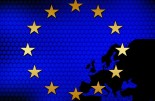AXA IM: EU to lead "coalition of the willing" in global economic order
AXA IM: EU to lead "coalition of the willing" in global economic order

While it remains to be seen whether and how far Donald Trump’s threats will materialise, Gilles Moëc, AXA Group Chief Economist and Head of AXA IM Research, takes a step back and reflects on the current shape of what used to be called the world’s economic order.
Moëc introduces the notion of 'clubs', describing a group of countries which share similar values or security concerns. Global companies, when setting up their supply and distribution lines, cannot count of much stability from the clubs which looked absolutely solid and obvious just a few years ago.
Full-on fragmentation, with the uncertainty that it creates, is now a real risk, with adverse consequences in terms of global price levels and efficiency, according to Moëc. "Besides the two antagonistic unstable clubs, one centred on the US, the other on China, a more traditional loose alliance of countries, still organised around the multilateral framework of the old globalisation, could survive," he explains. "We could find signs of this in the recent agreements concluded between the EU and the Mercosur, or the rapprochement between post-Brexit UK and the EU.
This loose alliance and the two “clubs” would not be mutually exclusive: for instance, Canada and Mexico would remain in the US-dominated club but could at the same time pursue a tightening of their economic links with the EU and Mercosur. Such hybrid model would be more palatable than all-out fragmentation, even if to navigate it would require a lot of agility from global companies." Moëc points out a paper by the the Peterson Insitute for International Economics (PIIE) that calls the EU to take the lead of such 'coalition of the willing'.
"Yet, the EU must first prove its internal solidity," Moëc adds. "The elections in Germany on 23 February will be a key test. The outcome remains uncertain, and we provide some illustrative scenarios. We remain doubtful that Berlin will be willing to take the EU to a deeper state of integration after the elections, while coalition negotiations will likely generate a transitory political vacuum at a time when Europe is for now excluded from peace talks on Ukraine which can have serious ramifications for its future."









